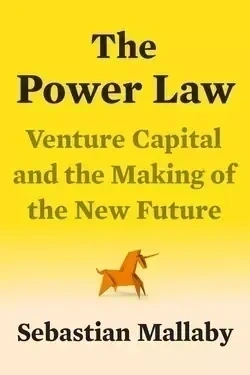
The Power Law
Venture Capital and the Making of the New Future

The astonishingly frank and intimate story of Silicon Valley’s dominant venture capital firms—and how their strategies and fates have shaped the path of innovation and the global economy.
- Book
- Foreign policy analyses written by CFR fellows and published by the trade presses, academic presses, or the Council on Foreign Relations Press.
More on:
Innovations rarely come from “experts.” Elon Musk was not an “electric car person” before he started Tesla. When it comes to improbable innovations, a legendary tech venture capitalist told Sebastian Mallaby, the future cannot be predicted—it can only be discovered. It is the nature of the venture capital game that most attempts at discovery fail, but a very few succeed at such a scale that they more than make up for everything else. That extreme ratio of success and failure is the power law that drives the venture capital business, all of Silicon Valley, the wider tech sector, and, by extension, the world.
In The Power Law, Sebastian Mallaby has parlayed unprecedented access to the most celebrated venture capitalists of all time—the key figures at Sequoia, Kleiner Perkins, Accel, Benchmark, and Andreessen Horowitz, as well as Chinese partnerships such as Qiming and Capital Today—into a riveting blend of storytelling and analysis that unfurls the history of tech incubation, in Silicon Valley and ultimately worldwide. We learn the unvarnished truth, often for the first time, about some of the most iconic triumphs and infamous disasters in Silicon Valley history, from the comedy of errors at the birth of Apple to the avalanche of venture money that fostered hubris at WeWork and Uber.
Venture capitalists’ relentless search for grand slams brews an obsession with the ideal of the lone entrepreneur-genius, and companies seen as potential “unicorns” are given intoxicating amounts of power, with sometimes disastrous results. On a more systemic level, the need to make outsized bets on unproven talent reinforces bias, with women and minorities still represented at woefully low levels. This does not just have social justice implications: as Mallaby relates, China’s homegrown venture capital sector, having learned at Silicon Valley’s feet, is exploding and now has more women venture capital luminaries than the United States has ever had. Still, Silicon Valley venture capital remains the top incubator of business innovation anywhere—it is not where ideas come from so much as where they go to become the products and companies that create the future. By taking us so deeply into the venture capitalists’ game, The Power Law helps us think about our own future through their eyes.
More on:
In the Press
What Elizabeth Holmes and Theranos Reveal About Venture Capitalism
New York Times
Behind the "Power Law": How a Forgotten Venture Capitalist Kick-Started Silicon Valley
Washington Post
The Quiet Revolutionaries Who Transformed Capitalism
Prospect review by Lionel Barber
Sebastian Mallaby's Thoroughly Magnificent "The Power Law"
Forbes review by John Tamny
 Online Store
Online Store